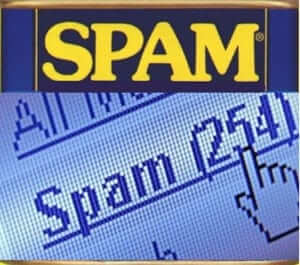
When spam first became a widespread phenomenon, back, oh, between 15 and 20 years ago, part of the problem in using existing laws to go after spam – or, indeed, in creating new laws specifically addressing spam – was that nobody could really agree on what is spam. What is the definition of spam? It was sort of like that classic line from Justice Potter Stewart – everyone would know it when they saw it, but nobody could quite agree on what “it” was.
That all changed when Paul Vixie, founder of Mail Abuse Prevention System (“MAPS” – which is ‘spam’ spelled backwards) and I sat down and hammered out the definitive definition of spam.
Some of you may be thinking “Gee, Anne, who the heck are *you* to tell the world what the definition of spam should be?” Me? I’m nobody. But my dear friend Paul Vixie, well, he is exactly the person to tell the world what is and isn’t spam, in no small part because he is the creator of much of the email infrastructure on the Internet. And, of course, he created the first anti-spam blacklist.
So, when I joined MAPS as their Director of Legal Affairs, one of our first orders of business was to sit down and hammer out a definition of spam – one which was essentially air tight, wouldn’t create any situations where something not spam was erroenously classified as spam (known as ‘false positive’), and which also wouldn’t not classify something as spam that genuinely was spam (known as ‘false negatives’). The definition of spam that we came up with met our criteria, and I think it still stands up today as well as it did when we first drafted it. Here it is:
The Definition of Spam
The Internet Patrol is completely free, and reader-supported. Your tips via CashApp, Venmo, or Paypal are appreciated! Receipts will come from ISIPP.
“An electronic message is “spam” IF: (1) the recipient’s personal identity and context are
irrelevant because the message is equally applicable to many other potential recipients;
AND (2) the recipient has not verifiably granted deliberate, explicit, and still-revocable
permission for it to be sent; AND (3) the transmission and reception of the message
appears to the recipient to give a disproportionate benefit to the sender.”
The Internet Patrol is completely free, and reader-supported. Your tips via CashApp, Venmo, or Paypal are appreciated! Receipts will come from ISIPP.










Spam is unwanted solicitation, plain and simple. However do it’s potential to exploit, law must regulate, and fines levied against offenders as a ratio of the financial benefit they achieved through using/abusing spam functions inherent in every email platform.